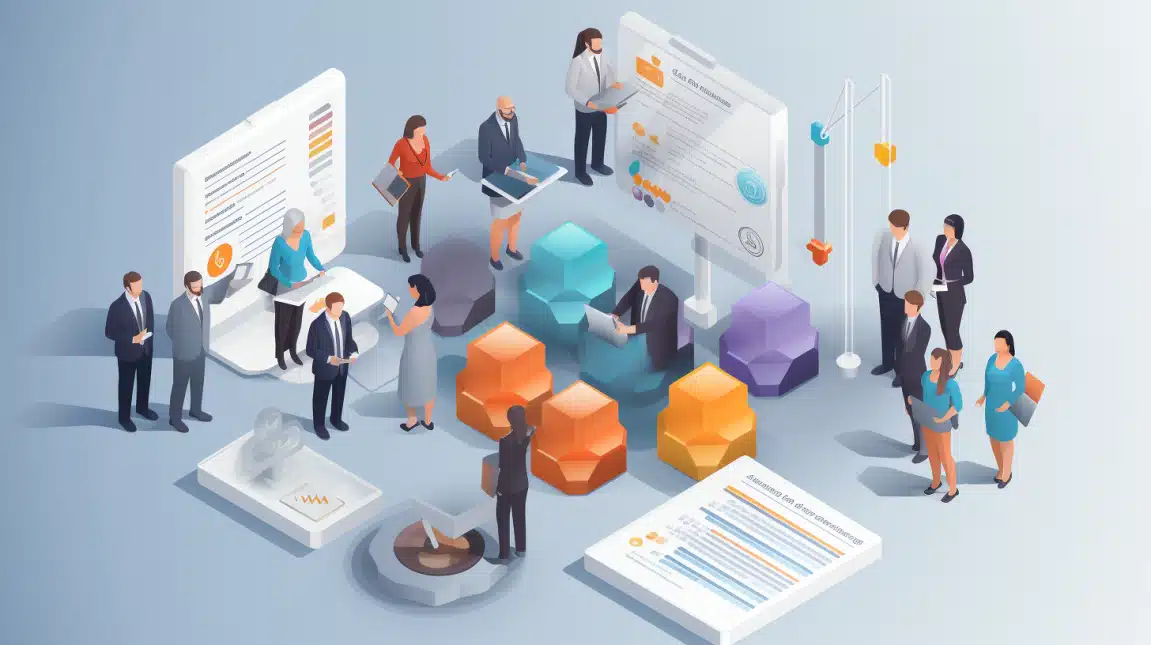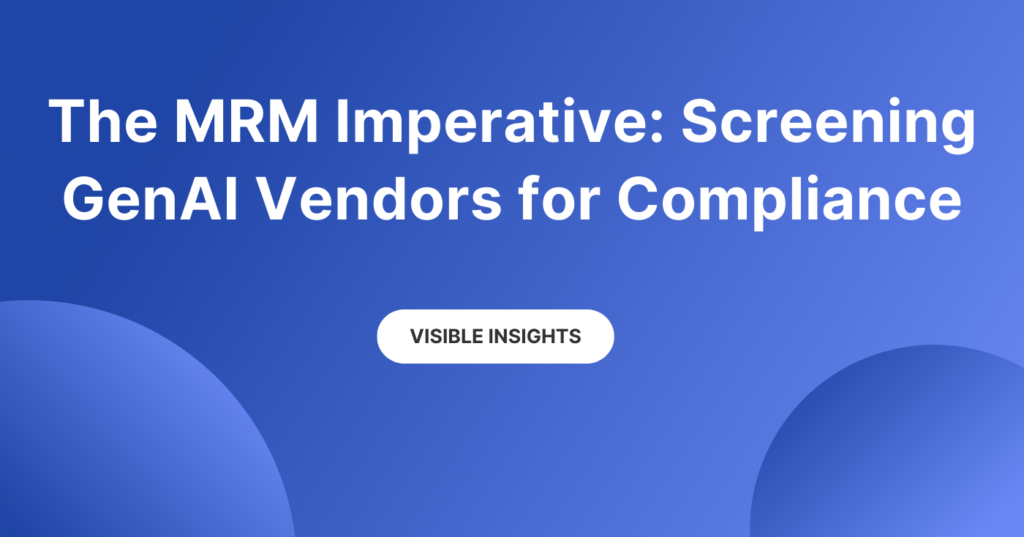Dear Buyer, You Should Really Start Looking at Vendor Culture

As co-founder and chief business officer at Shield, I’ve seen firsthand how a vendor’s company culture can profoundly impact business—on both sides of the equation from being the buyer to being the vendor. In digital communications governance (DCG), the decisions financial institutions make when selecting a vendor to partner with has a meaningful impact on the effectiveness, reliability, and ethical considerations of its communication surveillance solutions. It isn’t just about finding a partner to provide a service—it’s about finding a trustworthy provider that aligns with your values and is with you every step of the way as your business grows and faces challenges.
A company’s culture is driven by its values and underpins how it treats its employees and its customers. It provides a framework for true customer partnership, innovation, and ethical product development—or not.
As the technologies, customs, and cultural norms surrounding digital communications continue to evolve faster than ever before, a DCG vendor’s values directly affect your organization’s efforts to provide great products and services to your own customers.
Aligned values will ensure you’re on the same page with your vendors—working together to create value for your teams and customers. Vendors who embrace respect, honesty and perseverance are constantly updating their tools and technologies to ensure their customers are armed with the most accurate data for decision-making. That means higher productivity and less time wasted on inaccurate reporting and misinformation. With the right partner, you can work together to develop a solution that helps your organization stay effective and able to adapt to any challenge. But, how do you find vendors with strong values that match your own? I have some ideas.
The impact of vendor culture
Understanding why vendor culture is so important begins with looking at how vendors impact the businesses they serve and why it’s important to look beyond technology and functionality when choosing one. Here are some benefits of choosing a vendor with strong, human-centric values.
Creative problem-solving
Innovation thrives when companies nurture it from within. Companies that make feedback and listening a key part of their culture foster an environment of curiosity, collaboration, continuous learning, and open-mindedness. Part of this is because by listening and learning, employees are encouraged to offer new ideas and find solutions that the industry is facing. They learn from mistakes, and as a result, grow and contribute to better products and services for customers.
These values make it paramount for employees to be creative and try new ideas and develop more advanced and effective DCG solutions. Encouraging out-of-the-box thinking means that we stay ahead of the curve—leading not following the industry, so our customers can do the same.
No matter the product, companies that embrace creativity and feedback outpace their competitors in launching new products and features, adapting to changing market conditions, and learning how to best solve their customers’ problems.
Customer service excellence
In order to prioritize feedback and listening, vendors must be customer-center. This starts with top-notch customer service and support, because in their view, their primary purpose is to solve problems—their customers’ problems. They work closely with clients to learn about their goals, KPIs, struggles, and achievements—and then align products to meet customers’ needs. Customer-centric vendors consider themselves less “vendor” and more “partner”—an extension of your team dedicated to your success.
Many of our own customers come to Shield from vendors that offered the right technology but ended up sorely lacking in support. One of our customers shared, “We partnered with a vendor whose technology seemed perfect on paper, but their lack of responsiveness and poor customer support left us struggling to integrate their DCG solution effectively. It was a hard lesson that technology alone isn’t enough; the vendor’s culture of support and partnership is crucial.”
It’s not just about customer support when something is going wrong, it’s about being attentive and anticipating needs before issues arise. Vendors who are attentive to their customers and transparent about pressing issues, respond quickly to their needs and get to the root cause of problems and resolve them. This responsiveness helps organizations operate efficiently and serve their own customers without worrying about a vendor that doesn’t have the same customer-centric mindset.
Ethical product development
A healthy customer-vendor relationship centers on trust.
Ethical practices and products are about long-term viability instead of short-term wins.
A vendor’s ethical standards, transparency, and commitment to the security and data privacy of their customers are fundamental assets in the DCG domain, and where customer put their trust in the hands of the vendors they partner with
And that’s why so many businesses are moving quickly to partner with vendors they can trust. As another Shield client recounted, “Our experience with a previous vendor was eye-opening. Despite their promises of a compliant and efficient solution, their approach to data privacy and security standards became evident, compromising our operations. For us, a vendor’s values and ethical commitments are non-negotiable.”
Evaluating vendor culture
I know first-hand how much work and dedication it takes to build an innovative, ethical, and human-centric corporate culture. It’s easy to put down on paper how you want your company to show up in the world but nurturing that vision into fruition requires active participation and full buy-in from every single employee—from the top down.
Evaluating vendors for a culture fit comes down to “living your values”—if your organization values transparency, creativity, high ethical standards, and a customer-centric approach, the vendors you work with should do the same. After all, the actions your organization take isn’t the only thing people look at when looking at your values—the people and vendors you work with will also play a role in how others perceive you.
Ask the following questions and advice before deciding to partner with a vendor:
- What is the long-term experience of an existing customer of this vendor? Don’t ask them just about the product and its capabilities, ask about the overall experience with their team, their management.
- In the sales process, try to meet as many people as you can from the vendor’s team, this will give you a wider view of the company culture.
- Review employee feedback on sites like Glassdoor, this gives a good indication of work ethics and values.
- What response time can you expect when dealing with unexpected issues? Issues with vendors—especially for sensitive tasks like communications surveillance—must be resolved quickly.
- Can the vendor provide examples of how customer feedback has shaped their products or services? What are recent enhancements the vendor made to their offerings to adapt to changing market conditions?
- What do you do to ensure your ethical standards are integrated into your product development? Organizations must regularly audit themselves and reflect on how they operate, whether their products align with their values and whether they’re doing the best they can to provide support and value to their customers. Look for SOC2, ISO and other audit vendors with high standards maintained.
Additionally, look for red flags such as a lack of transparency, disorganization, or poor communication. These should tell you right away that the vendor might not be the best fit.
Look for a vendor culture fit
At the end of the day, working with a vendor should be a complex process. It’s a relationship and there is no one-size-fits-all. But like with any relationship, look for the basics: Similar values, communication, and transparency. Working with a DCG vendor whose culture and values align with yours can make all the difference in remaining proactive and addressing potential issues quickly. While technology and functionality are critical, having a vendor whose culture is compatible with yours helps boost the success of your own organization.
Related Articles

The MRM imperative: Screening GenAI vendors for regulatory compatibility
Subscribe to Shield’s Newsletter
Capture everything. Deploy anywhere. Store in one place.


